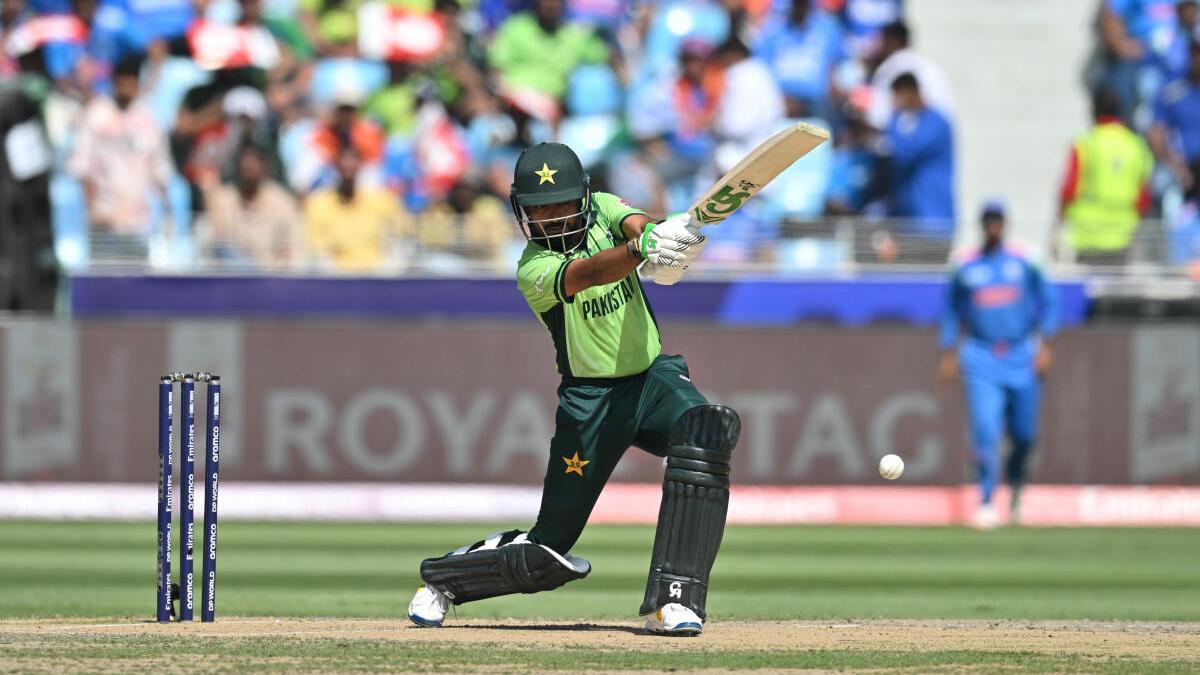 |
|
The omission of Babar Azam, a stalwart of Pakistan's batting lineup, from the Twenty20 International squad for the upcoming Asia Cup 2025 has ignited a debate surrounding his suitability for the shortest format of the game. While his prowess in Test and One-Day International cricket remains undisputed, concerns linger regarding his strike rate and ability to dominate against spin bowling in T20s. Coach Mike Hesson has explicitly stated that Babar needs to address these areas to regain his place in the T20I side, emphasizing the team management's commitment to prioritizing players who can deliver impactful performances in the dynamic landscape of T20 cricket. This decision highlights a growing trend in modern cricket where adaptability and explosive scoring are paramount, even for established players. The pressure is now on Babar to prove his mettle and demonstrate his willingness to evolve his game to meet the demands of the format.
Babar Azam's T20 International record reveals a batsman of considerable talent but one who has perhaps not fully translated his potential into consistent explosive performances. His career strike rate of 129, while respectable, falls short of the benchmark set by modern-day T20 specialists who consistently score at a rate of 140 or higher. Furthermore, his struggles against spin bowling have been a recurring issue, often leading to periods of stagnation in the middle overs. In T20 cricket, where momentum is everything, such periods can be detrimental to the team's overall scoring rate. Hesson's call for improvement specifically targets these areas, urging Babar to develop new scoring options against spin and to adopt a more aggressive approach from the outset of his innings. This directive underscores the importance of adaptability and innovation in T20 cricket, where batsmen must constantly evolve their game to stay ahead of the curve.
The emergence of players like Sahibzada Farhan, who has impressed with his aggressive batting and match-winning performances, has further complicated Babar's path back into the T20I side. Farhan's ability to score quickly and consistently has provided the team management with a compelling alternative, demonstrating the depth of talent within Pakistan cricket. The decision to prioritize players who are currently in form and contributing to the team's success is a logical one, reflecting a meritocratic approach to team selection. This approach sends a clear message to all players that performance is the ultimate determinant of selection, regardless of past achievements or reputation. Babar now faces the challenge of proving that he can not only improve his own game but also offer something unique and valuable to the team that Farhan and other emerging players cannot.
Mike Hesson's suggestion that Babar Azam should participate in the Big Bash League (BBL) in Australia presents a valuable opportunity for him to hone his T20 skills in a competitive environment. The BBL is renowned for its high-quality bowling attacks and challenging batting conditions, providing batsmen with an ideal platform to test their abilities against spin and pace. By playing in the BBL, Babar can gain invaluable experience in adapting to different pitches and strategies, further diversifying his skillset. This experience could be instrumental in addressing the concerns raised by Hesson and ultimately enhancing his chances of a successful T20I comeback. The BBL also offers a significant opportunity to showcase his improvements on a global stage, attracting the attention of selectors and fans alike.
The Asia Cup 2025 presents a crucial test for Pakistan's T20I squad, particularly in the absence of Babar Azam. The tournament will provide a platform for the emerging players to demonstrate their capabilities and solidify their positions in the team. Pakistan's opening match against Oman and the highly anticipated clash against arch-rivals India will be closely watched, offering a glimpse into the team's strategy and overall competitiveness. The success of these matches will be pivotal in shaping the team's confidence and momentum heading into future tournaments. The performance of the batsmen, in particular, will be under scrutiny, as the team seeks to establish a consistent and aggressive scoring rate throughout the competition. This Asia Cup could serve as a catalyst for Pakistan's T20I resurgence, marking the beginning of a new era of dynamic and fearless cricket.
In conclusion, the situation surrounding Babar Azam's T20 International future highlights the evolving demands of modern cricket and the importance of adaptability. While Babar's talent remains undeniable, his strike rate and ability to dominate against spin are areas that require improvement. The team management's decision to prioritize players who are currently in form and contributing to the team's success underscores a meritocratic approach to selection, emphasizing the significance of performance over reputation. The onus is now on Babar to prove his mettle and demonstrate his willingness to evolve his game to meet the demands of the format. His participation in the Big Bash League could provide a valuable opportunity to hone his skills and showcase his improvements on a global stage. The Asia Cup 2025 will serve as a crucial test for Pakistan's T20I squad, offering a glimpse into the team's strategy and overall competitiveness as they seek to establish a consistent and aggressive scoring rate. Ultimately, the success of Pakistan's T20I team will depend on the ability of its players to adapt to the dynamic landscape of the format and deliver impactful performances under pressure.
Source: Pakistan tells Babar Azam to improve strike rate for T20 comeback after Asia Cup 2025 omission
